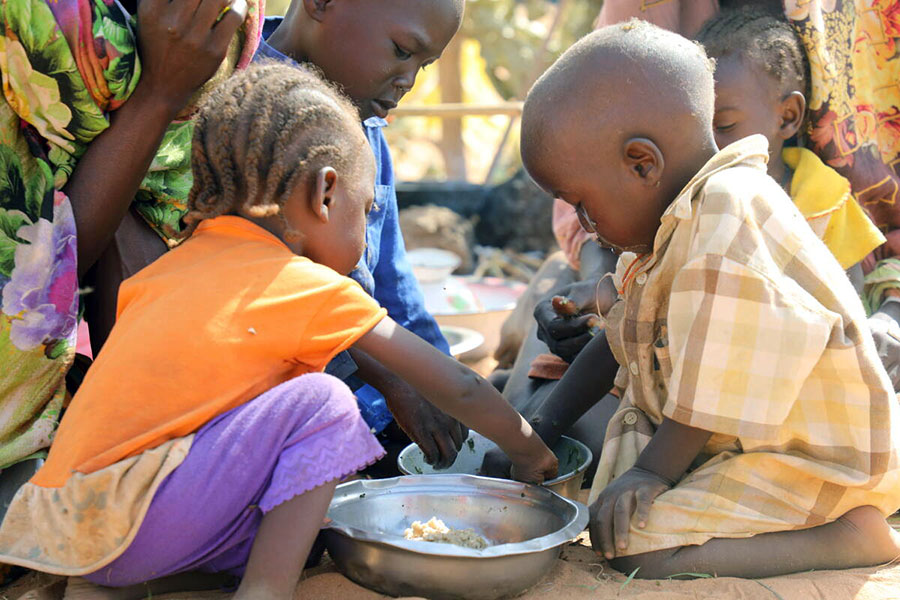Sudan Media Forum
October 27, 2025 (KHARTOUM) – Sudanile – On the morning of April 15, 2023, the Sudanese people were shocked by the outbreak of war between the Armed Forces and the Rapid Support Forces (RSF). The first spark of war was in the Sports City, south of Khartoum, and it then extended to include the entire capital, Khartoum, with its three cities. It expanded to encompass all of Sudan’s states, with the states of Khartoum, Gezira, Kordofan, and Darfur being particularly affected. Finally, the city of El Fasher fell into the grip of the Rapid Support Forces after a siege that lasted for more than two years.
In any case, it transformed from a war between two warring parties into unprecedented destruction and the displacement of millions, between IDPs and refugees. Then it took a very dangerous turn, threatening to undermine the social fabric and the disintegration and annihilation of the entire state.
Human and psychological losses
Thus far, according to estimates, the war has claimed more than one million victims, between the wounded and injured, most of them civilians, especially women and children. In reality, there are no accurate statistics on the number of dead, injured, and missing in this war, and this in itself is a violation. In other words, for example, no accurate estimates are available for the number of victims of diseases resulting from the war separately from the total deaths, due to the collapse of the health system and the difficulty of collecting data in active conflict zones.
However, studies indicate that indirect deaths, including those resulting from preventable diseases and malnutrition, constitute a large and alarming part of the total human losses.
What adds to the tragedy is that most of the injuries among soldiers and civilians were severe physical injuries that left permanent disabilities, causing the surviving victims to suffer from psychological trauma, depression, anxiety, and social isolation that will accompany them for many years or for the rest of their lives.
Family disintegration and the spread of crime
The raging war has led to the disintegration of family and social bonds, with rising rates of divorce and separation, loss of trust, and the spread of violence and crime. This is a result of the deteriorating economy after the massive financial losses citizens suffered, as infrastructure and vital facilities (hospitals, schools, universities, roads, power and water networks, markets, factories, government interests, and homes) were destroyed. Economic activities completely stopped, and the majority became, overnight, unemployed, injured, or outside their cities or villages.
More than 12 million displaced and refugees
The displacement of Sudanese as a result of the war is the largest internal and external displacement crisis in the world, with the number of IDPs estimated at more than 12 million. The rest have become refugees in neighbouring countries, such as Egypt, Chad, South Sudan, Uganda, Rwanda, and Kenya.
Health and environmental impacts
One of the biggest disasters that has befallen civilians as a result of the war is the health catastrophe, which has been exacerbated by the destruction of hospitals and health facilities. Infectious diseases such as cholera, dengue fever, and malaria have spread, and their prevalence rates have increased. Tens of thousands have been infected, according to local medical reports, but the number of infected is much higher due to contaminated drinking water, the accumulation of bodies in the streets without proper burial, deteriorating sanitation services, and overcrowding in IDP camps.
Among the serious health effects of the war is the pollution of air and soil with chemicals, toxic gases, and carbon dioxide resulting from explosions, fires, and leaks of chemical and petroleum-based materials from military equipment.
Famine
Sudan is currently witnessing a food shortage that is the worst in the world, resulting from the destruction of basic services and livelihoods, the disruption of agricultural production, the siege of cities, and the obstruction of food and humanitarian aid. Famine was officially confirmed in August 2024 in the “Zamzam” camp for IDPs in North Darfur, the first declaration of famine by the Famine Review Committee (FRC) in more than seven years.
About 24.6 million people (nearly half the population) face acute food insecurity, and two million people also face the risk of starvation or catastrophic levels of hunger (IPC Phase 5), which is the highest percentage in the world.
More than a third of children face acute malnutrition, and mortality rates related to hunger and its resulting diseases are increasing.
The media: a negative role
Before and during this war, the Sudanese arena has witnessed massive, systematic media campaigns carried out by the two parties to the war, aiming to distort facts and mislead domestic and international public opinion. This is done by publishing misleading and fabricated information and producing and widely disseminating false content through various media channels and social media sites.
These campaigns are based on huge material and human resources. This is done through the selective choice of information, repetition of messages, and manipulation of images and audio-visual content, while concealing or distorting facts that do not serve the desired agenda.
The negative media has played a major role in fuelling this war, and even in turning it into a tribal, racist, regional, and factional war, which warns of the disintegration and demise of Sudan.
—–
The Sudan Media Forum and its participating members publish this material, prepared by the (Sudanile) newspaper, to reflect, preliminarily, the extent of the devastation that has afflicted Sudan as a result of the comprehensive war between the army and the Rapid Support Forces. The material points to the state of blackout that has covered the war, as accurate statistics and information that people need to avoid what can be avoided are absent.




